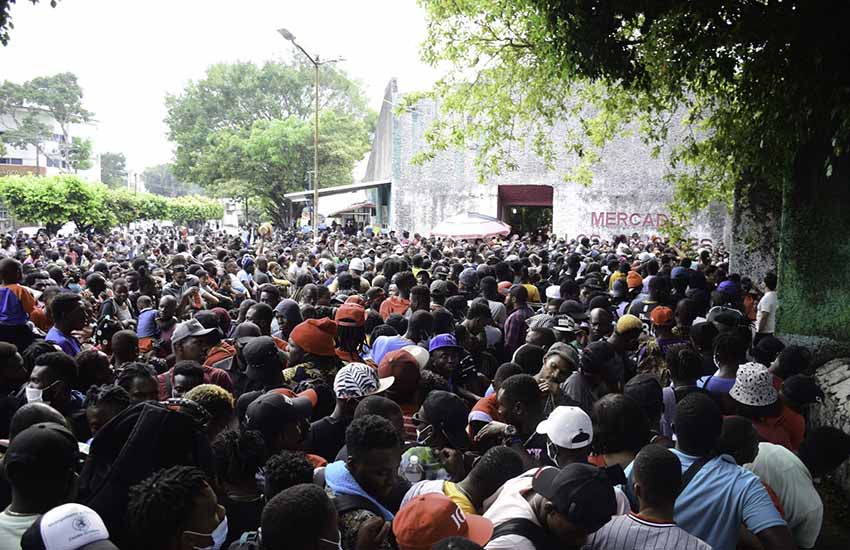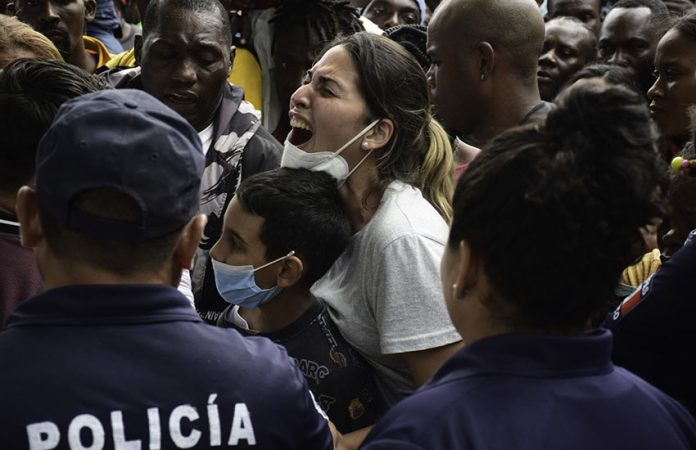Migrants forcibly entered the offices of the Mexican Commission for Refugee Assistance (Comar) in Tapachula, Chiapas, Monday, as up to 5,000 refugees protested delays in processing their asylum claims.
Monday was the first day Comar resumed full operations, after a 15-day holiday period in which it only attended to scheduled appointments.
Migrants from numerous countries, including Haiti, Cuba, Venezuela and Central America started gathering outside the offices over the weekend, blocking a nearby street. Tempers flared among the waiting migrants after Comar officials announced they would prioritize pregnant women and family groups, leaving thousands more queuing for up to 12 hours.
Most of the migrants were hoping to apply for a Unique Population Registry Code (CURP), a national identity number that legalizes their stay in Mexico while their asylum claim is processed. The CURP allows refugees to access social programs and monetary aid while in the country and prevents them being detained or deported by the National Migration Institute (INM).

“We do this procedure to be a little safer, so that they don’t deport us to our country, which we left because of the poverty and violence there since they killed the president,” one Haitian migrant, Ronaldo Pierre, told the newspaper Diario del Sur, referring to the late Haitian president, Jovenel Moïse, who was assassinated in July of 2021.
Several migrants told local media that authorities should find ways to better organize the process, to prevent the long delays. Even after the application is filed, processing can take up to three months.
Although Comar insists that the CURP is not intended to be used to transit through Mexico, many hope that it will facilitate their journey northwards.
“We want papers to remain in Mexico legally and continue the journey to the northern border [toward] the United States,” Cuban migrant Yanela told the news agency EFE.
Comar has been struggling to cope with historically high asylum claims since the coronavirus pandemic. The commission received more than 118,000 applications during 2022, only a slight drop from the record 130,000 claims received in 2021. Over 76,000 of the claims in 2022 were made in Tapachula.
Meanwhile, the U.S. Office of Customs and Border Protection (CBP) detained an unprecedented 2.76 million undocumented migrants over the course of the year. Many of these were repeat arrests due to pandemic-era regulations, often referred to as Title 42 regulations, that allow asylum-seekers to be immediately expelled to Mexico, driving many to make multiple attempts to cross the U.S. border.
With reports from LatinUS, El Sol del Centro and La Razón
